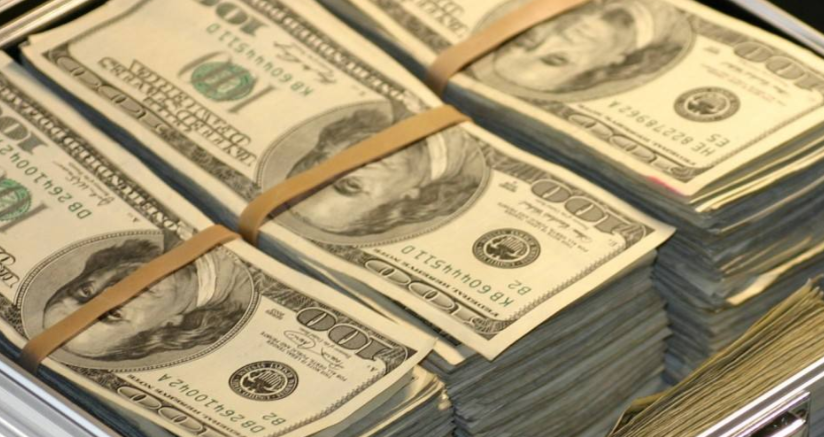Rate Hike Pressure Mounts on the Fed
Advertisements
In a recent interview with Bloomberg, former U.S. Treasury Secretary Larry Summers sounded the alarm about the current state of inflation in the United States. He noted that the nation finds itself at a particularly precarious moment when it comes to rising prices, implying that the risk of inflation resurfacing is critically high. Summers emphasized that the Federal Reserve's next move could likely involve an increase in interest rates, contrary to prior market expectations that suggested potential rate cuts.
Summers stated, “This is not a matter of probability but a very real possibility. Right now is especially dangerous for any kind of cost shocks, any rhetoric that undermines inflation confidence, and any fiscally irresponsible measures.”
His comments reignited concerns in the markets regarding the economic outlook for the U.S. Back in 2021, Summers had already warned that excessive fiscal and monetary stimulus might trigger the worst inflation seen in a generation. His predictions, which some considered alarmist at the time, have unfortunately come to fruition as the U.S. experienced its most significant inflation surge in 40 years in 2022.
The tight job market and rising wages were key factors in this equation, as Summers highlighted that recent robust performance in the U.S. job market has set the stage for a rebound in inflation. In January, the non-farm payrolls added 143,000 jobs, falling short of market estimates. However, the previous two months saw considerable upward revisions, amounting to an increase of 100,000 jobs in total.
Additionally, wage growth was far beyond expectations, with an average increase of 0.5% in hourly wages for January, exceeding predictions by economists. Adjusted data from the San Francisco Fed indicated that job creation in January could surpass 200,000. “The rate of job increases has far exceeded what the U.S. economy can traditionally absorb, especially given the current tightening of immigration policies. Therefore, significant wage growth is not surprising,” Summers added.
This trend has triggered fresh worries in the markets about a potential resurgence of inflation. Independent surveys from both the University of Michigan and the New York Fed revealed an uptick in the public’s expectations regarding future inflation, suggesting that inflation confidence could be waning.

Another layer adding to the inflationary pressures in the U.S. stems from the government’s recent trade policies. The Biden administration’s newly announced tariffs and its crackdown on illegal immigration could exacerbate rising supply chain costs, subsequently driving up the prices of goods. Many economists have warned that such measures, including the deportation of undocumented immigrants and tightened border control, may lead to labor shortages, further intensifying wage pressures. Furthermore, an increase in tariffs could induce one-time price hikes, with the potential to elevate long-term inflation levels.
Meanwhile, the Federal Reserve's approach to this inflation scenario remains cautious. Jerome Powell, chair of the Federal Reserve, reiterated during a Senate hearing that he believes there is no immediate need for the Fed to rush into cutting interest rates. He pointed out that post a cumulative one percent rate cut in the final months of 2024, policymakers would remain patient to observe economic patterns.
Powell's remarks resonate with Summers’ warning. The market had previously largely anticipated that the Fed would initiate rate cuts around September 2024, approximately reducing rates by about 35 basis points over the year. However, given the rising expectations for inflation, the prospect of rate hikes is now being reassessed by the markets.
It is also noteworthy that in 2022, the Federal Reserve conceded that it had been too slow to adjust its policies in 2021. Powell stated at the time, “In hindsight, we should have raised interest rates sooner.” Now, the critical question looming over the Fed is whether it will underestimate inflation risks yet again, becoming the focal point of market scrutiny.
In conclusion, the current state of the U.S. economy finds itself at a pivotal juncture. On one hand, the rise in inflation expectations, accelerated wage growth, and shifts in trade policy are catalyzing fears of the Federal Reserve being compelled to implement more aggressive tightening measures. Conversely, the Federal Reserve still adopts a cautious stance, delaying any immediate policy changes.
Should inflation data continue to remain elevated in the upcoming months, the anticipation for rate cuts could fade further, necessitating the consideration of potential rate hikes. Investors will need to keep a close watch on labor market conditions, inflation statistics, and the latest statements from the Federal Reserve to gauge the future direction of monetary policy.
Leave A Comment